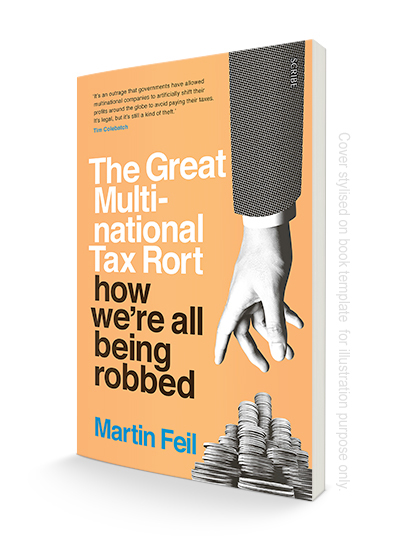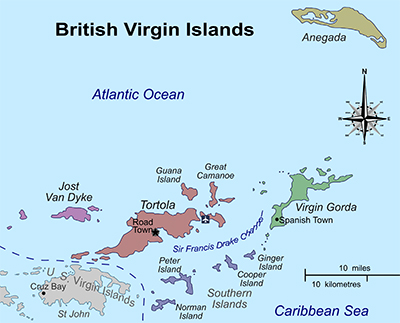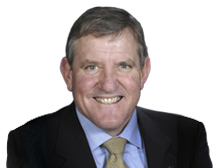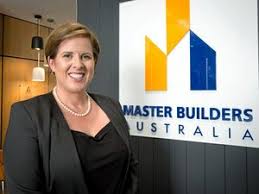TRANSFER PRICING >> 
MARTIN FEIL is probably the most knowledgeable person in Australia about transfer pricing, profit shifting and multi-national tax rorts. In fact, he wrote the book on it: The Great Multi-national Tax Rort – how we’re all being robbed.
Or, you could also say truthfully, he wrote both books on it. The first, also published by Scribe Publications, was named The Failure of Free Market Economics – and it was a mind-blower for Australian business people on its release in 2010. It seemed a shame its revelations did not appear to hit the mark in government circles.
Mr Feil’s latest work ratchets up the commentary and the huge weight of evidence to a nuclear fission-level anger point.
He has been gently described as a poacher turned game keeper, for he has worked both sides of the fence: advising companies on strategies to minimise tax and tariffs, while with Ernst and Young (now EY), and also working for the Australian Customs Office and the Tariff Board, then later as an investigator for the Australian Taxation Office. Mr Feil had been chairman of the Institute of Chartered Accountants customs committee and the institute’s representative on the ATO’s transfer-pricing sub-committee before his recent retirement.
While his work has been illuminating, it has also suffered the fate of being overlooked by authorities in Australia for far too long. He has offered up how it started in the Australian context, how the Big Four accounting firms globally have made a sinister art form of it, how successive Australian Governments have ignored the warnings in favour of a ‘free trade at any cost, for the greater good’ agenda, and what can be done about it now.
On that last point, Mr Feil gently adds the ominous phrase “before it’s too late” for Australia.
How Australia is being burgled by multi-nationals
FOR MOST Australians, the issue of transfer pricing is up there in the ‘cloud’ so vigorously promoted by the US-developed tech companies who want us all to live there. While increasingly a ‘child’ of the cloud-centric world in which Australians drift, the sinister effects of this artfully created profits transfer system are hitting home.
When the Federal Government is telling Australians that it is actually ‘good news’ that the deficit has reduced to $45 billion a year – about the same as the major multi-national tech. companies allegedly short-changed Australia in profits taxes last year – the maths seem brutally simple.
Then you look at what numbers of Australian dollars are permanently leaving Australia in other sectors such as finance and oil – while in other reports Australia has a shortfall in funding for education, medical care, aged care and infrastructure, so taxation may have to be re-set – and you realise why there is a simmering anger among Australian business people.
Many business people are livid at being hounded by government regulatory authorities like clockwork for GST payments, BAS statements and superannuation deposits at the same time as multi-national profit shifters are seemingly left alone in a luxurious too-hard basket.
Martin Feil knows all about. He has been talking frankly about these problems for decades, followed up in recent years by two detailed and critical books about the rorts of multi-nationals on the Australian economy. 
The amount of money exiting the Australian economy forever is unprecedented and, you’d have to think, unsustainable. Here is an infuriating tidbit:
“In 2013-14, Apple Australia paid around $80 million in income tax on revenue of over $6 billion.”
And another: “In 2011, Amazon paid an effective tax rate of 0.5 percent on its UK earnings of £3.35 billion.”
That Amazon fact was one of the catalysts for the UK bringing in what is often called its ‘Google tax’ on turnover to help stem the flow of revenues through transfer pricing and it has also energised the OECD. The Australian Government, perhaps because of the complexity of these issues and the complications of international trade agreements, is working within the OECD framework to find a way forward.
It has recently been announced that Amazon is about to establish logistics facilities to step into Australia proper. The media has general been enthusiastic about the prospect. Australia’s retail sector has been mute, so far.
PAPER SHUFFLING
The Panama Papers revelations shocked the world, but as Mr Feil points out, it should have energised governments to look long and hard at what is a much bigger problem – predatory transfer pricing.
“The 11.5 million pages released in the first tranche of those (Panama-based firm Mossack Fonseca) documents revealed truly shocking global tax avoidance and tax evasion – but they dealt with the behaviour of wealthy individuals and their tax advisers. They did not deal with similar behaviour by multinational corporations and their very highly paid tax advisers. The latter is a much bigger problem …
“Transfer pricing is a completely different matter. This technique, developed by multinational corporations, has been out in the open for at least the last 25 years, with more and more devastating consequences for governments and their citizens around the world.
“The multinationals have perfected the practice of selling to their global affiliates at prices that would send the affiliates bankrupt if they were left on their own, trying to recover their inflated import costs in the marketplace. The affiliates survive only because the banks of the world lend them money based on the surety letters from their parent companies or regional head offices.”
So Australia’s big banks are privy to this global sleight of hand too.
“This process has allowed multinational firms to dominate the markets for goods and services in around 180 countries, or to operate without permanent establishments and have no tax obligations anywhere. This trick relates principally to internet operators such as Google, Amazon, Apple etc, and to ‘sharing economy’ companies such as Uber and Airbnb.”
If there is a bright side to the brazen nature of this unprecedented vacuuming up of wealth it is that the governments of major world economies are working together co-operatively, like never before, on tax rulings that attempt to combat transfer pricing. But they are a long way behind.
Perhaps one of the reasons they are a long way behind is that the people who create these transfer pricing structures, processes and arrangements – named by Mr Feil as the world’s Big Four business advisory services PricewaterhouseCoopers, EY (formerly Ernst and Young), Deloitte and KPMG – are also the same firms who supply a lot of the advice to governments on such issues. Australia included.
Mr Feil cites the 2013 report, Tax Avoidance: the role of the large accountancy firms, by the UK House of Commons Committee of Public Accounts, which gathered evidence form the Big Four accounting firms:
“HM Revenue and Customs (HMRC) appears to be fighting a battle it cannot win in tackling tax avoidance. Companies can devote considerable resources to ensure that they minimise their tax liability. There is a large market for advising companies on how to take advantage of international tax law and on the tax implications of different global structures. The four firms employ 9,000 people and earn £2 billion from their tax work in the UK, and earn around US$125 billion from this work globally. HMRC has far fewer resources. In the area of transfer pricing alone there are four times as many staff working for the four firms than for the HMRC.”
How bad is it? Well, Mr Feil noted that in 2015 UK firm AstraZeneca was found to have paid no tax on £3 billion of profits, facilitated by channelling funds through a subsidiary in The Netherlands.
What major Australian operating companies also utilise The Netherlands? James Hardie Industries domiciled there in 2001 but later relocated to Ireland; although dual global headquarters are in Melbourne and London, BHP Billiton has a marketing division in The Netherlands as it does in Singapore; and, of course, Royal Dutch Shell is based in The Hague and has a dual London headquarters.
Here are some insightful core observations by Mr Feil …
OFFSHORE BIG GUYS MUSCLE OUR BIG GUYS TOO
“Multinationals not paying a fair share of tax is a core social problem for the people of Australia and the rest of the world.” He uses the case of Coles as an example – with Coles, as part of the great Australian so-called ‘supermarket duopoly’ often being accused of not being a ‘fair player’ in the Australian economy in relation to its handling of smaller suppliers. For example, the ‘dollar-a-litre’ milk instigated by Coles has often been publicly blamed for the demise of parts of Australia’s dairy industry.
But consider this … “Richard Goyder, the chief executive of Wesfarmers (the owner of Coles and Bunnings), commented in an address to the National Press Club on 5 August 2014 that Wesfarmers paid $1.5 billion in tax in 2013-14 while Aldi and Costco paid nothing. Why should that be so? The answer is that transfer pricing by multinationals has created a market and profit advantage for them that, ultimately, will destroy their competitors. Coles, along with Woolworths, is one of the largest employers in Australia. Most of its hundreds of thousands of employees are women trying to earn enough money working part time to keep the family afloat.”
It is ironic that some of the world’s most publicly admired brands – and most have solid community help and support programs – nevertheless are leaders in this transfer pricing process that threatens to undermine the economic fabric of their own major markets.
Ikea gets a mention in this company, which surprises many people, given its progressive and ‘responsible’ brand appeal.
The Australian journalist Eli Greenblat laid it out in plain terms in his report in December 2016:
“Accounts lodged by Ikea’s Australian arm show that for the 12 months to August 31, it posted sales of $969.5 million, up from $827.4m a year earlier. Gross profit jumped to $356.6m from $300.5m in the previous year.
“The usual costs of doing business — advertising, depreciation and wages — quickly whittled down that gross profit, as was the case in 2015, and Ikea booked $31.9m in “franchise fees” for the year and another $82.16m in “other expenses”.
“This reduced Ikea’s pre-tax profit to $37.5m from which $10.7m was paid in tax. This left Ikea with a profit for the year of $26.8m.
“In 2015 it was much the same story. Ikea then had combined “franchise fees” and “other expenses” of $89m that reduced its pre-tax profit to $25.5m and once $10.4m of income tax was paid Ikea had a profit of just $15.1m.
“At a time when Ikea’s sales increased by $142m, or 17 percent, and its profit jumped 77 percent, income tax recorded in its annual accounts lifted by less than $400,000.
“In 2014 franchise and other expenses totalled $70.9m while a line item titled “payment under risk agreement’’ swiped another $37.06m from Ikea’s pre-tax profit that year.
“It is believed these annual payments are charged by entities based in lower-tax jurisdictions. There is no suggestion Ikea has engaged in wrongdoing and the 2016 accounts were signed off by auditor Ernst & Young.
“The Swedish furniture juggernaut, known for its flatpack kits and hip interior designs, has long intrigued tax experts and rival retailers. Its inner workings are highly secretive. One document among the “Luxembourg leaks” reportedly showed that Ikea’s profit growth in Australia between 2004 and 2014 trailed sales growth — or sometimes went in the opposite direction — because the company reduced its taxable income by paying more than $2 billion in franchise fees, licence fees and royalties to its European parent.”
ARMAGEDDON TRANSFER PRICED TO DEATH
Martin Feil characterises the ever-expanding resort to transfer pricing by multinationals – or base erosion profit shifting as the OECD prefers to call it – as a global threat to the very societies that have borne them.
“We are talking about a deliberate and broad-based assault by the multinationals upon national tax collections, combined with their growing control of national markets for goods and services. If this strategy continues unchecked, it will (ultimately) destroy the foundations of the global industrial society while enriching a small percentage of the population.
“The law has not developed as it should have, because tax authorities and governments in general have not been prepared to tackle the increasingly predatory tax strategies and artificial arrangements the multinationals have adopted.”
The happenstance of how this race began in Australia is charted by Mr Feil. He cites the ironic fact that when high tariffs, based on the percentage of import value, were reduced in the 1980s and 1990s then, amazingly, import prices rose.
“High customs duties had previously been a deterrent for multinational parent companies charging prices that, together with duties and marketing on-costs, could be recovered in the consumer market by their subsidiaries.”
This is the time, just as more multinational brands were emerging, when the off-shoring and transfer pricing pundits had their revelation.
“The multinationals’ light bulb moment was to recognise that subsidiaries did not need to make a profit in every national market. In fact, foreign governments want to collect taxes on any such profits. The multinationals’ solution was to impose charges on their subsidiaries for royalties, manufacturing knowhow, and technical service fees. These parent-company imposts ensured that the subsidiaries never made a profit and so never paid company tax. In some cases, the subsidiaries incurred losses for decades.”
The more ironic aspect of that process is, while the ATO is expected to understand that, in such extreme cases only losses have been generated from the Australian market over many years — sometimes from hundreds of millions of dollars in annual turnover — but our banks are comfortable to lend to these ‘Australian’ entities.
“The global banks have been a great help to the multinationals,” Mr Feil wrote. “They are the conduits and facilitators of the multinationals’ transfer-pricing tax-minimisation strategies. And they provide financial facilities to companies that, to go by their balance sheets, have not made a profit for decades.”
Later in the book, Mr Feil sums up the apparent madness of continuing to go down this Base Erosion Profit Shifting (BEPS) path.
“Why do multinationals use transfer pricing? I suppose it is like the short-term madness and hubris on Wall Street that created the global financial crisis. There seems to be no end to greed, even if it is ultimately terminally destructive for the greedy. The owners and senior executives of the great global brands have already made an enormous amount of money. Yet they seem to want more. The Big Four accountants and economists involved in transfer pricing are also, even by their standards, making a great deal of money.”
COME OFF IT, MAN UP AUSTRALIA
Mr Feil knows the territory as he has seen it from both sides of the fence. He also sees solutions that governments and tax enforcers seem to find too energetic.
“The ATO has been substantially involved in transfer-pricing reviews, audits, advance-pricing arrangements, and other tax-review products for more than 25 years. It seeks fairly simple, initial levels of participation in the processes from multinational affiliates in Australia. The ATO is aware that parent companies and regional offices have bene managing the transfer-pricing issue on a worldwide basis for decades. Yet initial probes by the ATO often result in an Australian subsidiary client producing documentation that is out of date, does not represent the present functions, assets and risks of the affiliate, and does not indicate any awareness of the Australian rulings and legislation …
“The taxpayer documentation review and negotiation process is like watching cold oil drip. No one in Australia will take responsibility for documentation, and no one will make much effort to explain how and why a company’s functions, assets and risks paradigm have altered during decades of product change, divestment of subsidiaries, acquisitions of new business, the impact of new government policies, or any other change that may impact upon transfer-pricing analysis. Often the documentation is badly out of date and does not accurately represent the subsidiary’s functions, assets, and risks at the time of the audit – and certainly not at the time of judicial review,” he wrote.
“For smaller Australian multinational affiliates, the entire issue is outside their control, beyond their budget, and not in their interest. The managing director of a major company recently told me that he would be poorly regarded if he brought the issue up with his European head office. I know that whenever a matter blows up, the global transfer-pricing people form the United States and Asia come to Australia for the discussion with the ATO. This would obviously be the case for European multinationals as well. Local executives generally have a minor role, and cannot make final settlement decisions.”
If you think this is hyper-critical of multinational subsidiaries in Australia, take a look at the Senate Enquiry into Corporate Tax Avoidance that quizzed the Australian CEOs of some of these multinationals.
http://www.abc.net.au/lateline/content/2015/s4212940.htm
http://www.abc.net.au/7.30/content/2015/s4212931.htm
https://www.youtube.com/watch?v=OAJMlBExD4w
ATO MAKES SOME MOVES
The ATO does have access to one potentially powerful new tool: the Sub-Division 815-A and –B additions to the Income Tax Assessment Act 1936 (ITAA). This sub-section allows the ATO to look seriously at transfer-pricing cross dealing back to 2004-05 – and it has been applied already to the ATO’s Federal Court case against oil giant Chevron Australia, as a deterrent.
The power behind 815-A is its retrospectivity, given that the parent company loans to the Australian subsidiary, which came about ostensibly because of Chevron’s global purchase of Texaco in 2000, caused a restructure in Australia. Essentially the loan interest payments were under question for their alleged non-commercial nature, which permitted Chevron to reduce profits in Australia through higher interest payments.
The ATO’s case for a 25 percent penalty, which it finally won in a decision in 2015 (but which has drawn appeals from Chevron, so Australia has so far won no money from the decision) was complex and relied on testimony from oil and gas industry experts, a banking industry expert, a transfer pricing economist, three (credit) ratings experts and an accounting expert. Federal Court Judge Alan Robertson’s judgement ran to 118 pages in this complex case and looked like costing Chevron more than $300 million.
Mr Feil has some prescient advice for the ATO and the OECD, shaped from first-hand experience when he worked there as the authority on transfer pricing practices: Get Moving Fast.
“It has taken the OECD over 20 years to move aggressively against transfer pricing and identify the fundamental threat it has become to the global economy. The pace is simply too slow.
“The damage to national tax collections has been immense. If the Big Four (PwC, EY, KPMG and Deloitte) have been paid US$500 billion in 25 years, how much tax have their multinational clients avoided globally? It must be in the trillions of dollars …”
Australia’s approach of working within the OECD does make sense as, if any money is to be recovered from decades of transfer pricing ‘cup shuffling’ it will require the cooperation of the offending multinational’s home market – and in so many cases that is the US.
Of course, it becomes academic if the real profits have ended up in a tax haven or, in modern parlance, ‘disappeared into the cloud’.
As Mr Feil laments, “Correlative relief is obviously morally correct, but it often takes a long time for the home tax authority to give some of the money back.”
His other idea, of forgetting the past and, from this point onwards, setting ‘new rules’ for how the money can be counted by multinationals operating in Australia – eliminating predatory transfer pricing from now on – may be the smartest way to go.
That might take public knowledge of what their favourite brands are doing and induce public pressure.
That is what these Business Acumen reports are all about.
ends


 How to resolve AdBlock issue?
How to resolve AdBlock issue? 







